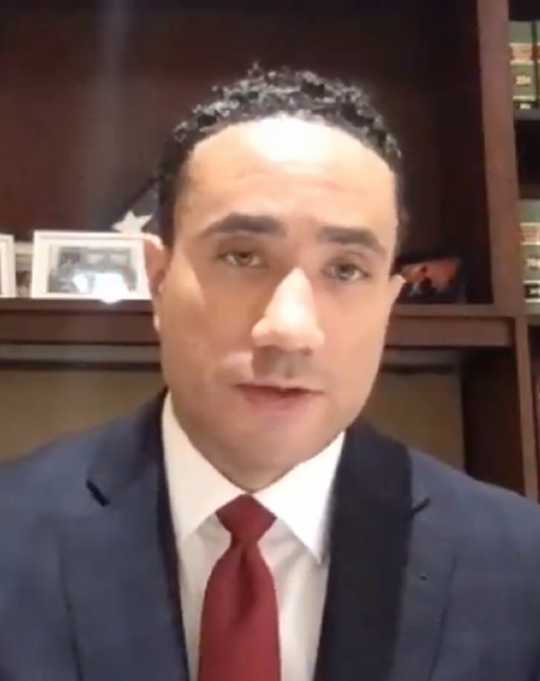 Senate Judicial Proceedings Committee Chairman Will Smith (D-Montgomery) speaks at a virtual hearing on police reform on Wednesday (screenshot).
Senate Judicial Proceedings Committee Chairman Will Smith (D-Montgomery) speaks at a virtual hearing on police reform on Wednesday (screenshot).COLUMBIA, Md. (Sept. 23, 2020)—Democratic-sponsored legislation that increases the amount of money local governments are forced to pay in police brutality lawsuits will bankrupt many of the state's small towns, Sen. Mike Hough (R-Carroll and Frederick) told the Senate Judicial Proceedings Committee Wednesday.
"There's a lot of towns in western Maryland where they have their own police force and they have an annual budget of anywhere from $1 million to $3 million in total. So, if you are one of these small towns…how do you continue to have a police force when you are facing at any time unlimited liability? A lot of these towns can't afford a million-dollar suit against them. That's why we have tort claims for all the acts that these small towns do," Hough said at the virtual hearing.
Hough added: "If they (small towns) were to have an unlimited claim come against them on anything it would bankrupt the whole town."
Chairman Will Smith (D-Montgomery), who sponsored the legislation, said it would help victims of police violence recoup medical expenses and encourage police departments to take officer misconduct more seriously.
"It will allow for some additional relief for the victims…a lot of times their out of pocket expenses or medical expenses will far exceed whatever they are able to recover. It's just such an injustice. The theory here is that you are going to incentivize locals and the state to pay more attention to the training and the oversight and the conduct of their officers."
Smith said right now many victims of police violence are being "re-victimized economically" because of liability caps.
Hough fired back, reiterating that the legislation would wreak economic havoc on small-town departments.
"My concern with the bill is this: if you are Montgomery County or the Frederick County Sheriffs Office…if you're a large jurisdiction you can afford it. But if you're a small municipality you can't…And if a small town with a budget of $2 million looks at the police force liability insurance-or the potential cost of it; I fear they're going to ditch their police force and just get resident troopers from the deputies office."
Smith countered, saying that municipal insurance policies, which many of the state's jurisdictions have- make bankruptcy unlikely. Smith also said that small towns are on average less likely than larger jurisdictions to have had a major incident of police misconduct.
"That underwriting process obviously takes into account some of the standards and the training…So, for your locals, I think the fact that they have a pristine record-that they are engaged in community policing and that they're less likely to have had a major incident…factors into that."
Wednesday marked the second day of the committee's hearings on legislation aimed at addressing police misconduct. A total of 15 bills are under consideration. Seven bills were introduced and debated on Tuesday. Four bills were debated and introduced today. The remainder of the bills will be introduced and debated on Thursday.
Republicans have consistently stated their opposition to the bills, often labeling them as anti-police and anti-law enforcement. They have also decried the process, saying they were not given the opportunity to introduce their owns bills and that having bill hearings when the legislature is not in session is not appropriate.


